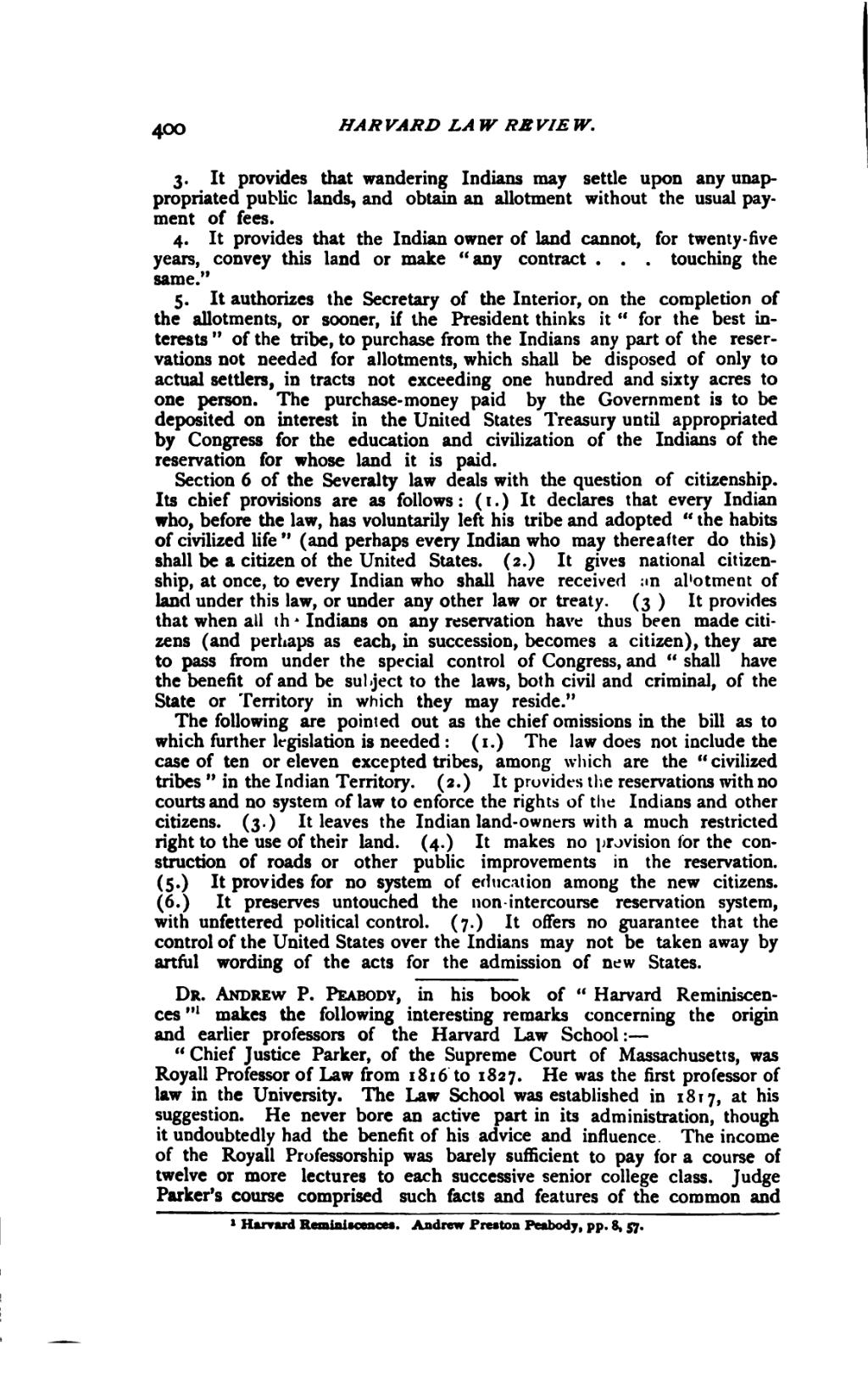3. It provides that wandering Indians may settle upon any unappropriated public lands, and obtain an allotment without the usual payment of fees.
4. It provides that the Indian owner of land cannot, for twenty-five years, convey this land or make “any contract… touching the same.”
5. It authorizes the Secretary of the Interior, on the completion of the allotments, or sooner, if the President thinks it “for the best interests” of the tribe, to purchase from the Indians any part of the reservations not needed for allotments, which shall be disposed of only to actual settlers, in tracts not exceeding one hundred and sixty acres to one person. The purchase-money paid by the Government is to be deposited on interest in the United States Treasury until appropriated by Congress for the education and civilization of the Indians of the reservation for whose land it is paid.
Section 6 of the Severalty law deals with the question of citizenship. Its chief provisions are as follows: (1.) It declares that every Indian who, before the law, has voluntarily left his tribe and adopted “the habits of civilized life” (and perhaps every Indian who may thereafter do this) shall be a citizen of the United States. (2.) It gives national citizenship, at once, to every Indian who shall have received an allotment of land under this law, or under any other law or treaty. (3.) It provides that when all the Indians on any reservation have thus been made citizens (and perhaps as each, in succession, becomes a citizen), they are to pass from under the special control of Congress, and “shall have the benefit of and be subject to the laws, both civil and criminal, of the State or Territory in which they may reside.”
The following are pointed out as the chief omissions in the bill as to which further legislation is needed: (1.) The law does not include the case of ten or eleven excepted tribes, among which are the “civilized tribes” in the Indian Territory. (2.) It provides the reservations with no courts and no system of law to enforce the rights of the Indians and other citizens. (3.) It leaves the Indian land-owners with a much restricted right to the use of their land. (4.) It makes no provision for the construction of roads or other public improvements in the reservation. (5.) It provides for no system of education among the new citizens. (6.) It preserves untouched the non-intercourse reservation system, with unfettered political control. (7.) It offers no guarantee that the control of the United States over the Indians may not be taken away by artful wording of the acts for the admission of new States.
Dr. Andrew P. Peabody, in his book of “Harvard Reminiscences”[1] makes the following interesting remarks concerning the origin and earlier professors of the Harvard Law School:—
“Chief Justice Parker, of the Supreme Court of Massachusetts, was Royall Professor of Law from 1816 to 1827. He was the first professor of law in the University. The Law School was established in 1817, at his suggestion. He never bore an active part in its administration, though it undoubtedly had the benefit of his advice and influence. The income of the Royall Professorship was barely sufficient to pay for a course of twelve or more lectures to each successive senior college class. Judge
Parker’s course comprised such facts and features of the common and
- ↑ Harvard Reminiscences. Andrew Preston Peabody, pp. 8, 57.
